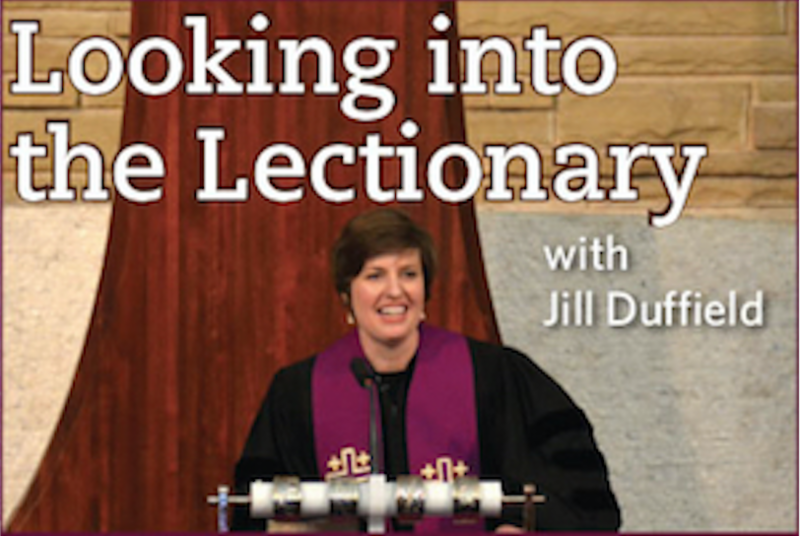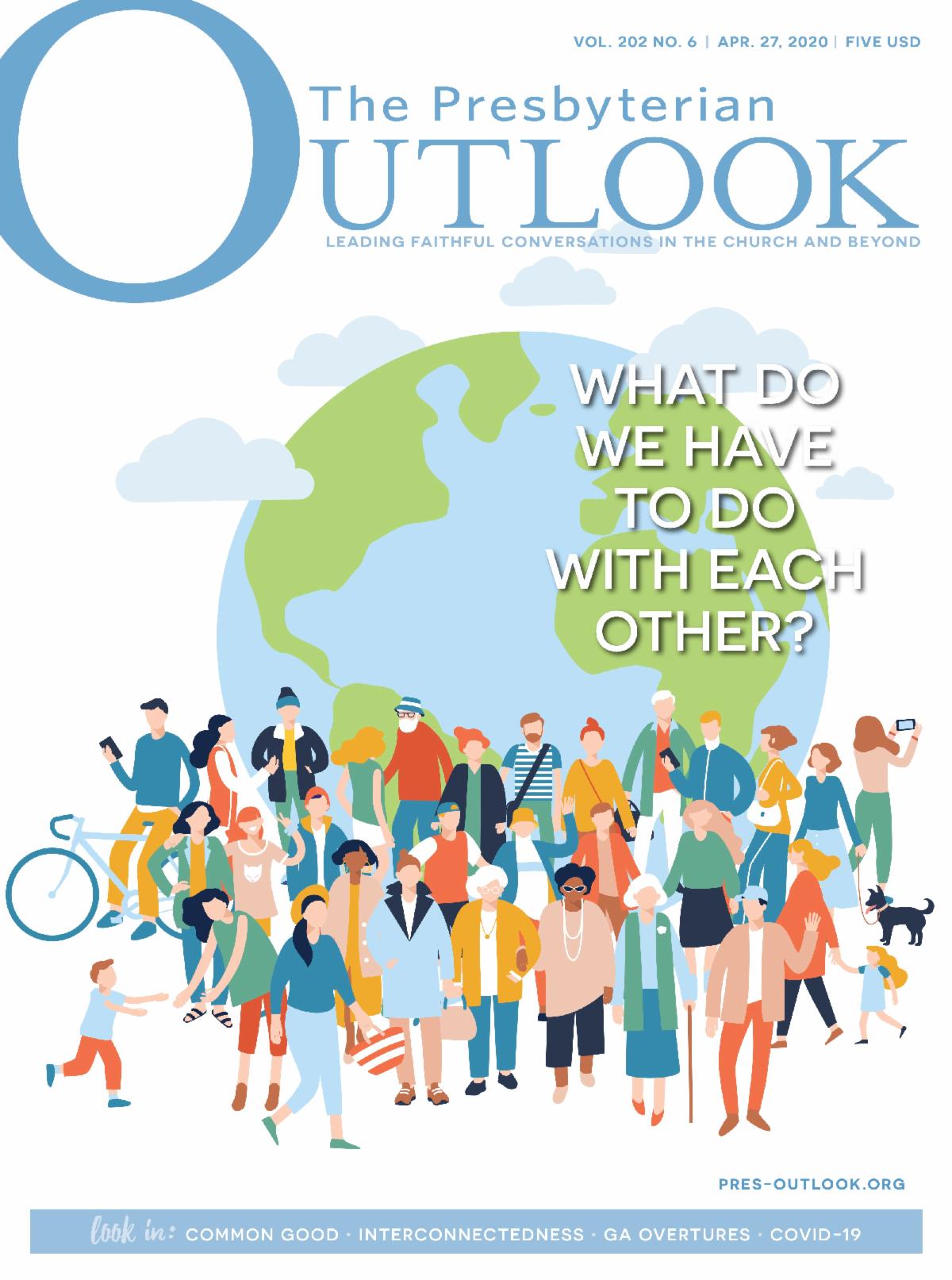 |
Jesus tells his disciples: If you love me you will keep my commandments.
|
|
|
 |
Outlook editor Jill Duffield brings lectionary reflections to your inbox
every Monday afternoon |
Pretty straightforward. Remarkably concrete, especially given that this comes in John's Gospel, that account of Jesus' ministry so filled with metaphor and mysticism. Here Jesus equates love with action. If you love me, you will keep my commandments. If we love Jesus, we will do what he tells us to do. We will obey the new commandment he gives a chapter before this one and repeats in the chapter after this one. We will love one another no less than Jesus has loved us. Concrete, but complicated and difficult.
I am reading a book by Ola Tjorhom titled, "
Embodied Faith: Reflections on a Materialist Spirituality." He argues, "Faith is first and foremost life." Faith is not so much about abstract ideas or theory, but rather about tangible practice enacted daily. He writes this about the church: "As the community of the justified, the church is called to embody the good news that forgiveness is a gift to be received from God and shared with others. Such a church has the capacity of serving as a sign of generosity, solidarity, and reconciliation in a world that desperately needs but acutely lacks such virtues." He goes on to note the centrality of love that "forms the basis of a spiritual life in solidarity and compassion, generosity and decency, fellowship and friendship: A spirituality that truly aims at the life of the world."
In other words, if we love Jesus, we will keep his commandments.
If we love Jesus, we will love one another no less than Jesus loves us.
If we love one another, God loves us.
This cycle of love from above and extended on earth grows as it is put into practice. It becomes a force aided and advocated by the Holy Spirit. This loving obedience to the love of God invites the presence and power of the Triune God within us, through us and around us. The unknown god of the Athenians gets upended through the experience of the embodied love of Jesus Christ. God is not far from each of us, God abides not only with us, but in us. Could there be a greater, more awesome reality than this?
Lately, though, I confess feeling a sadness that refuses to succumb to the complete joy Christ came to give. I survey the state of creation and giving a defense for the hope within me is challenging because that hope feels lacking. The pandemic's toll grows. The virus' destructive tentacles leave no aspect of our world free of its impact. Somehow our divisiveness has reached the point that the use - or not - of face masks is partisan. Even expressions of unity and the value of each human being - seemingly indisputably good values held by all - are met by derision and personal attacks. In short, I do not feel the love of God swirling and growing, transforming and reconciling in the ways I wish I did. Sometimes love is met with violence, not reciprocal care. Jesus knows this: His cross exposes this painful truth. The writer of 1 Peter notes that those who suffer for doing good are blessed. Love does not always beget love, and yet we who love Jesus are called to persist in loving even our enemies.
Samuel Wells writes in his book, "
Be Not Afraid: Facing Fear with Faith," of the discipline of joy. "The discipline of joy takes us to the places of death, despair, distress, desultory dilapidation. Do you avoid such places because they might make you feel uncomfortable, maybe even shake your faith? We don't have to keep ourselves on a high of happiness. Disciplined joy takes us instead to forsaken places, knowing those places aren't the whole story, but knowing also that those are the places where resurrection comes from."
Keeping Jesus commandments, loving one another, takes discipline. After all, we are to obey God's commandments and obedience entails a commitment to act in certain ways regardless of how we feel. What cannot be overlooked, however, is that we do not attempt to keep Jesus' commandments unaided or alone. God sends us the Advocate, the Comforter, the Holy Spirit. We are in no way abandoned or orphaned.
Perhaps, then, I ought to pay close attention to my growing sadness and rather than avoid the circumstances that elicit it, instead enter deeper into them, attempt to love the people entangled in them and trust that I do not go without the Holy Spirit, that God abides in me and in them and that those painful places are the very spaces where resurrection happens.
Years ago, when my oldest was only a baby, my sister and I made a pilgrimage from our homes in the United States to our grandmother's nursing home in North Sydney, Nova Scotia. My grandmother had had several strokes and was mostly bedridden. While the facility in which she lived was well run and staffed by kind people, it was no less an institution and nothing like the home that contained most of my memories of her. I did not relish the thought of seeing her so diminished, knowing she struggled now to feed herself, realizing that this visit with her would likely be my last. A dutiful love prompted our trip so that she could meet her first great-grandchild. Going to see her entailed a disciplined sort of joy. But 20+ years later, I can still recall her face when we crossed the threshold of her bounded world. No disciplined joy, but an exuberant, unbounded delight filled her countenance. Her strength diminished, one side of her body mostly uncooperative, she insisted that she hold him. She beamed at him and he beamed back, a love that broke the barriers of human finitude, consumed the space and reverberated down the hall as nurses, attendants and other residents came to admire my baby boy.
Jesus says if we love him, we will keep his commandments. If we love Jesus, we will love one another. When we love one another, God abides in us and it is undeniably evident that we are not alone. We are God's beloved children, in whom God delights.
This week:
- How do you love Jesus? Are there other biblical passages that instruct you in what it means to love Jesus and follow his commandments?
- Do you often think about the presence of the Advocate, the Holy Spirit? How have you felt the Spirit at work in your life or your church or your community?
- The epistle lesson speaks of "not fearing what they fear"? What is it that others fear that Christians need not fear?
- What difference does it make to consider that God abides with us and is in us? How do we remember that God is not far from each of us?
- When have you practiced the disciplined joy that Wells wrote about? When you did, did you experience resurrection?
- How much of love is a feeling and how much is an obligation? Can acting in loving ways impact our feelings and attitudes?





No comments:
Post a Comment